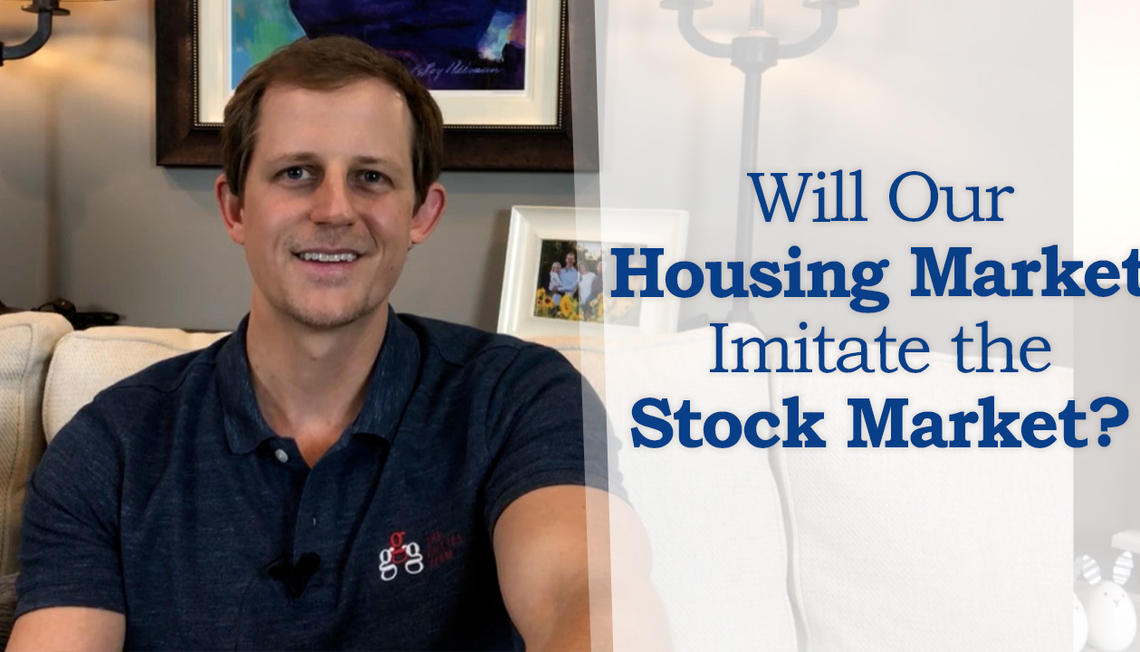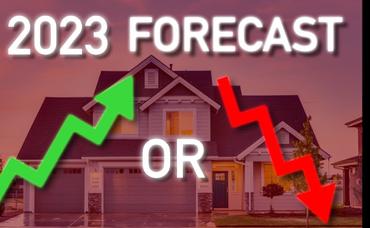Most people have the majority of their net worth invested either in the stock market or the real estate market. But now that things have taken a drastic turn due to the coronavirus, it’s important to establish whether or not the real estate market follows the same trends as the stock market. The stock market crash that occurred at the end of February was the sharpest decline seen since the collapse of 2008, and one of the worst crashes since the beginning of the Great Depression back in 1929. Does that mean the real estate market is in for the same? To find out, watch this the short video above.
Here is a full transcription of the video:
(00:02):
This is Michael Gillies with The Gillies team and today I want to talk to you about the stock market. Most people have the majority of their net worth invested in either the stock market or the real estate market. But does the real estate market follow the same trends as the stock market? Let’s dive in.
(00:19):
This is a question that I’ve gotten before but in light of recent events, I want to address it in depth. When COVID-19 first began to spread and get major media attention, the U S and international stock markets took historically significant hits. The crash that occurred at the end of February, 2020 was the sharpest decline that the stock market had seen since the market collapse of 2008 and one of the worst crashes since the beginning of the great depression in 1929 when Frank here was just 14 years old. In 2008 the housing market also took a historic dive, but why are we not seeing that in 2020? Well, that’s the topic for another video.
(00:57):
It is true that the stock market can have a direct effect on mortgage interest rates. It’s more complicated than this, but I’m going to try to make an attempt at an oversimplified explanation so that the video doesn’t get too boring and I don’t get in over my head. As a rule of thumb, as bond prices go up, mortgage interest rates go down and vice versa. Mortgage lenders tie their interest rates to the treasury bond rates. When investors can buy bonds with a higher return, say 3%, bonds that are paying 2% are less valuable and mortgage interest rates will tend to rise, but what if the opposite is happening? Well, bonds affect the stock market because they’re a competing product and both are looking for investors dollars, but bonds are generally safer than stocks. They also generally offer a lower rate of return. But when stocks go down and the market is uncertain, bond values tend to go up and generally work to push the mortgage interest rates down.
(01:59):
You got all that?! But here’s the thing. The housing market does not act like the stock market. For one thing, real estate tends to be far less volatile than stocks. Your home’s value might change, which is why it’s good to know how to determine what your home is worth, (There’s a link to our free home valuation tool below), but it’s still a piece of tangible property that will generally maintain and typically increase its value. Contrary to what you might think, the housing market is trending in the opposite direction of the stock market during the COVID-19 fears. The first few months of 2020 were some of the strongest months in recent history and the market is remaining stable. Because stocks are so volatile and real estate retains these strengths, now’s a great time to invest in real estate. The market factors that I just talked about, nd then the federal reserve’s actions have driven mortgage interest rates to near record lows, which means you can take this opportunity to either refinance your home or move up to a more valuable property. (There’s a link down below also to our free home search tool.) This is especially true right now if self quarantine is making you realize that you’ve maybe out grown your home.
(03:12):
If now is the time for you to make a move, let us know. I encourage you to rely on local info versus what you may hear in the national media to make the right decisions for you and your family. As we always say, real estate is hyper-local. Let us know what questions you have about local real estate by commenting below and as always, we love you and we’ve got your back.





 Welcome! By submitting information, I am providing my express written consent to be contacted by representatives of this website through a live agent, artificial or prerecorded voice, and automated SMS text at my residential or cellular number, dialed manually or by autodialer, by email, and mail.
Welcome! By submitting information, I am providing my express written consent to be contacted by representatives of this website through a live agent, artificial or prerecorded voice, and automated SMS text at my residential or cellular number, dialed manually or by autodialer, by email, and mail.


